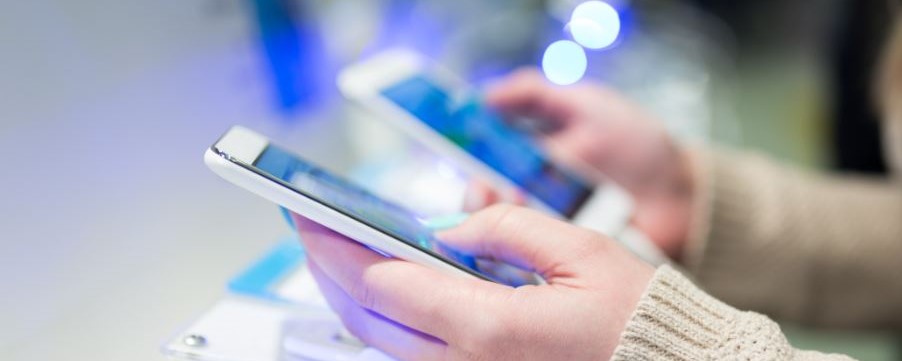Mobile devices like smartphones and tablets are basically small portable computers. The advantages are: small, stores lots of information, connects with everything (i.e., free WiFi, Bluetooth, wireless, cellular networks, etc.), time stamps and GPS tags, video and audio recording, microphone and camera, accepts authorized and unauthorized, applications, etc. Just like your computer at home they can be hacked, infected with a virus and, if unsecured, provide access to your personal information. Small and portable allows for easy loss, thief and destruction – water, fire, crushing, dropping, etc. High cost and sensitive information leads to increase desirability by criminal elements.
The risk of mobile malware is real: hackers can steal money and sensitive information, use these devices as bots and even spy on your activities. Unfortunately, most people have not realised the importance of protecting their mobile devices from such attacks
Protect Your Mobile Device
Keep your mobile device with you at all times, treat it like your wallet or purse. Can be used to access email, company, financial, and social media accounts. Subscriber Identity Module (SIM) card can be used make telephone charges to your accounts.
How and Where to Use
- Download only from reputable sites.
- Do not download content from unknown or unreliable sources.
- Turn GPS settings off when not in use.
- Log out of websites when you are finished.
- Do not open anything unless you are expecting it and it is from a trusted source.
- Set device to ask permission to join any new wireless networks.
- Avoid publicWi-Fi ‘hotspots’ in public places like cafés, airports, hotels and libraries
- If making sensitive transactions, only use secure websites and look for: https:// instead of http:// and a locked padlock or key in the browser website address bar.
Secure Your Mobile Device
- Turn on all security features of your device.
- Set apasswords or PINs for the device, accounts, and email.
- Install reputable security software.
- Set automatic updating for operating system.
- Turn off Bluetooth and only use in private areas.
- Use encryptedWi-Fi networks that require a
- Record the International Mobile Equipment Identifier (IMEI) printed on label under battery to for reporting device is lost or stolen and blocking use.
- If your GPS home location is activated on your smartphone and it is stolen, then the thief will know exactly where your home is, which places it at risk. When not needed delete this activation especially when you are on holiday.
Secure Your Information
- Back up data regularly.
- Do not save passwords or PINs as contacts on your phone.
- Avoid online banking over public Wi-Fi or in busy public areas to avoid people watching over your shoulder.
Installing and Using applications (apps)
Many apps collect and transmit personal information, location, contacts and messages. Set app permissions during installation. To avoid downloading hoax or malicious software use apps from reputable providers and review user feedback.
Install apps from recognised app stores
It is possible for some apps to exploit your mobile device once installed. This possibility increases if you install an app from a less reputable (or unknown) source. For example, someone could take a popular paid-for app, add their own illegitimate elements and then offer it for free on ‘bulletin boards’ or ‘peer-to-peer’ networks. Once the rogue app has been installed to your phone, the hacker could potentially take control of the handset, make calls, incur charges via premium SMS without your permission, or send and intercept SMS and voicemail messages. You may not be aware anything is wrong until it’s too late.
So, avoid apps from unauthorised sources, such as ‘bulletin boards’ or ‘peer-to-peer’ networks. Instead, download your apps from official stores. Above all, exercise caution – research the app and check reviews before downloading it.
Consider content ratings
Apps in some popular app stores provide content ratings. The ratings may help you judge whether an app is appropriate for children.
Typically, the ratings will give guidance on the content and intensity of themes such as violence, offensive language, sexual content, or drug references. You should be aware that each app store has its own content rating policy. This means that ratings will differ from app store to app store.
Please note these ratings relate to the content in the app itself. If you use apps that allow you or your child to connect to the internet and access content outside the app, you may want to consider further device-level or network-level protections, filters or safe search options. More detail on these can be found at http://www.internetmatters.org/technologies/parental-controls.html
Be aware of what permissions you are granting
When you download an app, it will often ask whether it can access certain systems or data on your device. This is known as a ‘permission request’ or a ‘permission’. For example, navigation apps may ask for permission to use your “current location” in order to provide accurate directions and location information. Photo editing apps may ask to gain access to your photos so that you can edit photos you take on your handset through the app.
It is generally agreed that developers should only request data and features directly necessary for the app to run. Some apps, however, may request additional permissions beyond what is strictly necessary for the particular app being accessed to function.
In order to protect your personal information, carefully read permission requests upon download or when prompted and ensure you are comfortable with the information you are authorising the app to use.
If you are not comfortable with the requested permissions, you should deny the request or search for an alternative app.
- Millennium Bank – Safety in Mobile BankingDownload
- Pokémon Go.Safe Use guide docxDownload
- europol-leaflet-risks-of-using-publicwi-fiDownload

